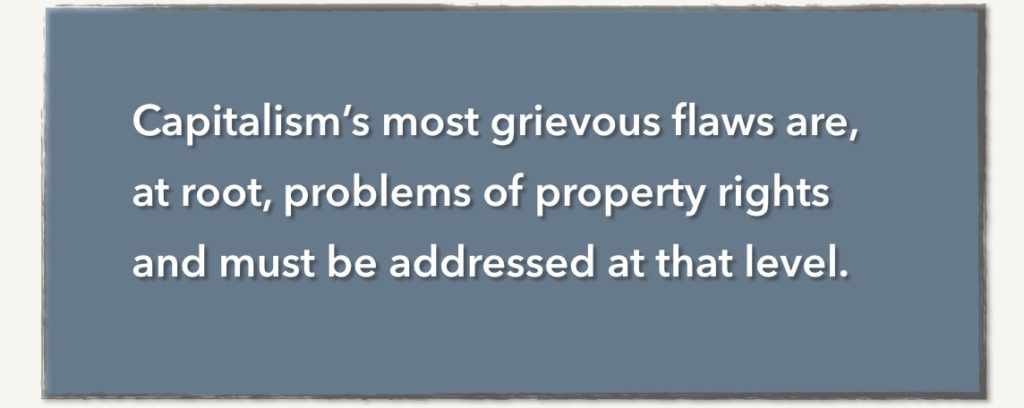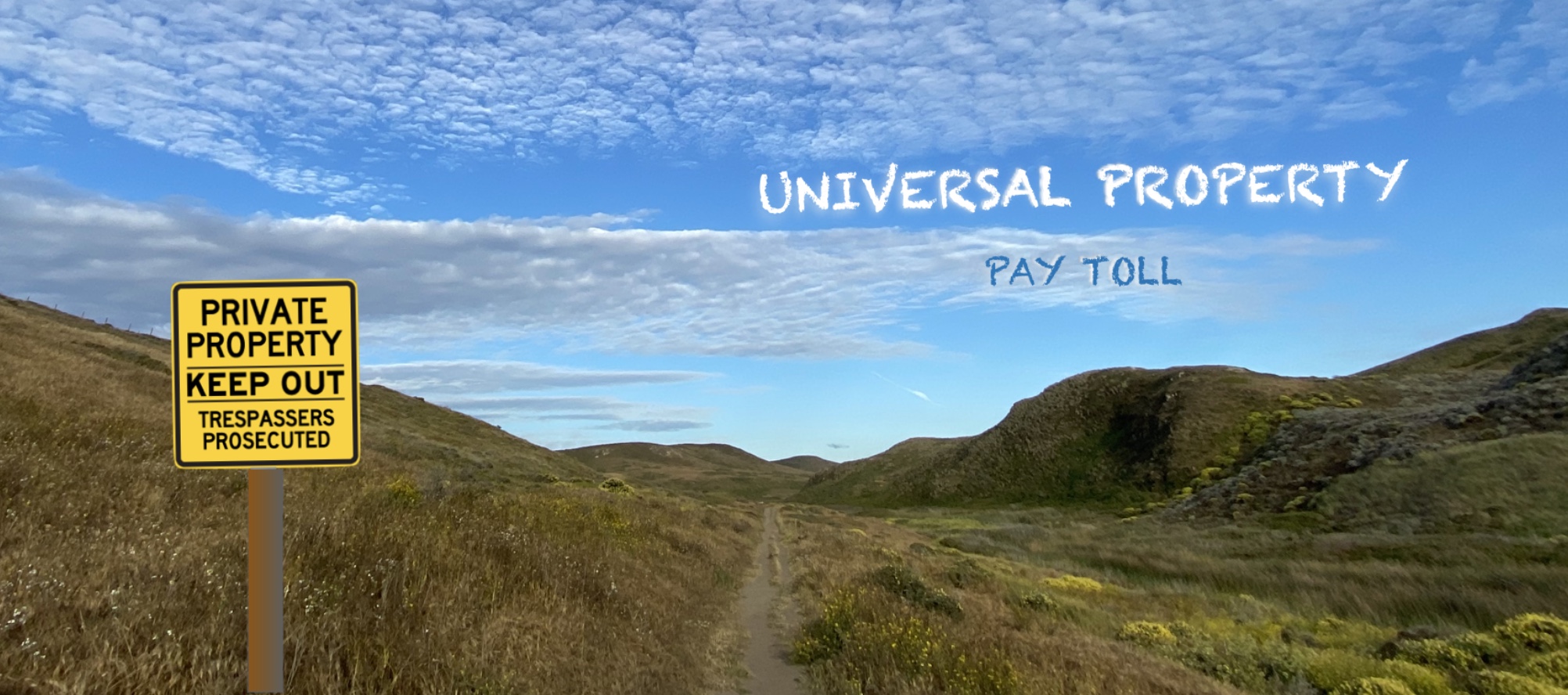Property rights are grants by governments of permission to use, lease, sell or bequeath specific assets — and just as importantly, to exclude others from doing those things. The assets involved can be tangible, like land and machinery, or intangible, like shares of stock or songs. Once granted, the rights to benefit from those assets can’t be taken away without due process and fair compensation.
Nowadays, property rights constitute the warp and woof of our economy. Taken as a whole, they are akin to gravity: they curve economic space-time. Their tugs and repulsions are everywhere, and just as water flows inexorably toward the ocean, so money, goods and power flow inexorably toward property rights. If we want to change the direction of those flows, we have to change the underlying fabric of property rights.
That said, the most oft-forgotten fact about property rights is that they don’t exist in nature; they are constructs of human minds and societies. Their design and allocation are entirely up to us. Today’s property rights are what they are, but tomorrow’s will be a product not only of the past, but also of our imagination and political will in the future. And while eliminating existing property rights is difficult, adding new ones is less so — think about the explosion of intellectual property rights in the last fifty years.



